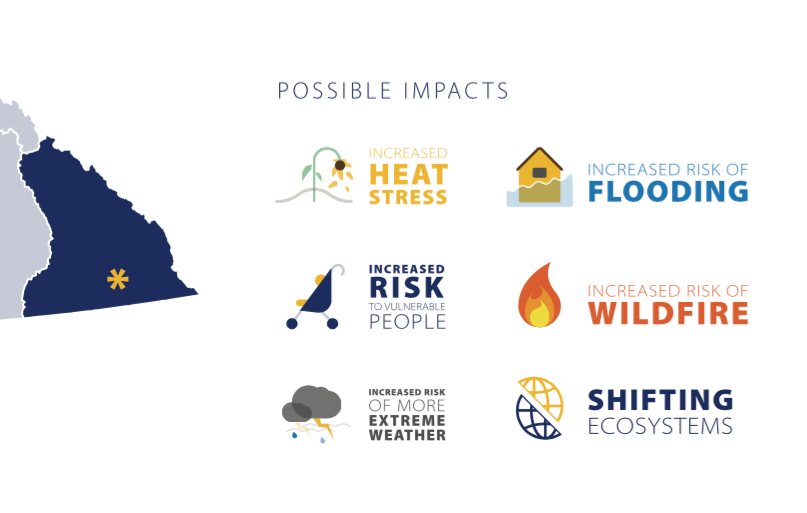Regional climate change expected to crank the heat, turn off the taps
The heat is on for climate change in the region.
According to a recent Columbia Basin report, if sizeable global reductions in greenhouse gas emissions do not occur, people in the region can expect up to 42 more days per year with maximum daytime temperatures over 25 degrees Celsius.
As well, there will also be a significant increase in maximum precipitation falling in one day between six to 35 per cent.
According to the Columbia Basin Climate Source report, the region already sees “hotter, drier summers, warmer, wetter winters, and more extreme weather,” with climate scientists projecting these trends will continue into the future.
“Average annual temperatures in the Basin have increased by 1.6 degrees Celsius over the last century, and the rate of warming has increased to 3.1 C per century over the last five decades,” the overview section of the report noted.
By the 2050s global climate projections are for the average annual temperatures to rise between 2.7C to 3.6C compared to the average annual data from 1951 to 1980.
Precipitation has increased on average by nearly 20 per cent since the early 1900s (rates vary by location and season). But climate change in the region is expected to throw that into disarray by as much as an increase of 19 per cent in the winter, and a decrease of 24 per cent in the summer.
That assumption is supported by the province (https://www2.gov.bc.ca), which noted that “increased winter precipitation will lead to increased snowfall in northern B.C., but warmer temperatures will reduce winter snowfall (more rain) somewhat in southern B.C. and substantially in coastal BC. Spring snowfall will likely be substantially reduced across all regions of B.C.”
Climate change retooling
According to a similar basin report, ReTooling for Climate Change (Retooling.ca) produced by the Fraser Basin council, it noted that B.C. communities are already facing the impacts of a changing climate.
“We know from our lived experiences and from climate modelling that climate change will bring extreme temperatures, severe storms, rising sea levels, heavy precipitation, flooding, droughts, wildfires, and other climate challenges,” the report noted.
With wildfires, drought, extreme heat and now heavy precipitation causing flooding already impacting most of B.C. this year, the words of the report ring true.
The report predicted:
- Hottest days reaching 39C by the 2050s, and 42C by the 2080s;
- •There will be 15 per cent less summer rain by the 2050s;
- There will be 50 per cent fewer frost days, and less snow on the mountains;
- There will be three times as many days over 30C, and a longer growing season;
- And there will be 10 per cent more rain in the spring.
The possible impacts will be an increased risk of flooding in the West Kootenay-Boundary, as well as increased wildfire risk and a shifting of the ecosystems.
Also on the increase will be heat stress for all living organisms, risk to vulnerable people and a higher level of extreme weather.
Source: ReTooling.ca
Nelson data
The growing season that has risen to 209.5 days in 2021 — from an average of 190.8 from 1951 to 1980 — will rise to 214.5 in 2050, bumping further to 234.5 days in 2080.
Data predictions also predict that days with a maximum temperature over 25C will more than double by 2080, from 36 in the recent past to 83.5 days by 2080.
Summer precipitation will drop from 149 millimetres to 131 in 2080.
“As temperature and precipitation patterns shift and change, ecosystems in the Basin can be expected to change, too,” noted the Columbia Basin Climate Source report.
“This includes more natural disturbances such as wildfire and pests, changes to the water cycle and water availability, and the emergence of new compositions of plant and animal species.”


























